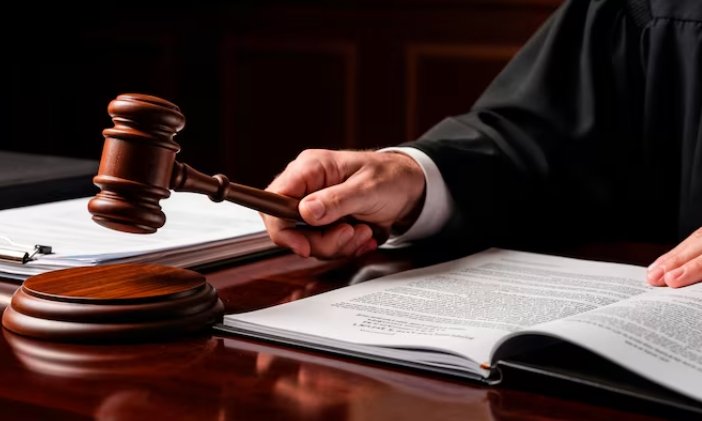A landmark ruling by Scotland’s First-tier Tribunal has changed how lease extensions are taxed under Land and Buildings Transaction Tax. In the case of Archer UK Limited versus Revenue Scotland, decided on August 18, 2025, the tribunal said that extending a commercial lease does not count as granting a new lease for LBTT purposes, opening doors for possible tax refunds.
Case Background
The dispute started with a commercial lease first granted under the old Stamp Duty Land Tax system before 2015. In July 2020, the lease got extended by five years through a simple variation agreement.
Archer UK Limited paid LBTT on the extension, following Revenue Scotland’s guidance at the time. But Revenue Scotland later challenged how the tax was calculated, leading the company to fight back and seek a refund.
This case highlights the shift from SDLT to LBTT in Scotland, which began on April 1, 2015. LBTT applies to land and building deals, including some leases, but rules on variations have been unclear until now.
Many businesses have faced similar issues since the tax change. Recent data from Revenue Scotland shows over 10,000 LBTT returns filed for leases in 2024 alone, with variations making up a growing share.

Key Issues in the Dispute
The tribunal looked at two main questions. First, does extending an old lease under Scots law create a new lease that triggers LBTT? Second, if it does, how should the net present value for tax be figured out?
Revenue Scotland argued the extension should be seen as a new lease based on their guidance and transitional rules from 2014. They wanted the tax calculated from the end of the original lease term.
Archer pushed back, saying Scots property law does not treat extensions as new leases. They claimed the guidance went too far and lacked legal backing.
Experts note this ties into broader differences between Scottish and English property laws. Under SDLT, which applied UK-wide before 2015, extensions often led to new tax charges, but Scotland’s system is distinct.
Here are the core arguments from both sides:
- Revenue Scotland: Relied on Article 13 of the 2014 transitional order, saying variations should mimic SDLT treatment.
- Archer UK Limited: Stressed that taxes must come from clear laws, not just agency guidance.
- Tribunal focus: Reviewed statutes, policy notes, and property principles to decide.
Tribunal’s Main Findings
The tribunal sided with Archer, ruling that lease extensions do not equal new leases under LBTT. They said Revenue Scotland’s guidance was wrong and could not override actual law.
On the calculation side, if LBTT did apply, the tribunal set the start date as the variation date, not the original lease end. This method cuts tax liability by applying higher discounts to future rents.
The decision stresses that taxes need solid statutory grounds. The judges pointed out flaws in assuming SDLT rules fully carry over to Scotland.
This ruling builds on recent tax cases, like a January 2025 tribunal decision on LBTT penalties for late filings, where Revenue Scotland’s reminders were not required by law.
| Aspect | Revenue Scotland View | Tribunal Ruling |
|---|---|---|
| Lease Extension Treatment | Treated as new lease, LBTT due on extra rent | Not a new lease, no LBTT triggered |
| NPV Calculation Start | End of original lease | Date of variation |
| Guidance Role | Binding interpretation | Not law, can be ignored if flawed |
| Impact on Taxpayers | Higher potential liability | Lower or no liability, possible refunds |
Implications for Scottish Businesses
This decision could lead to refunds for companies that paid LBTT on lease extensions since 2015. Estimates suggest thousands of commercial tenants might claim back taxes, with total refunds possibly reaching millions.
For ongoing deals, it means less tax worry when extending leases. Real estate experts predict more lease variations without LBTT fears, boosting market activity.
However, Revenue Scotland might appeal, so businesses should watch for updates. The ruling also questions other guidance areas, like three-year LBTT reviews for leases.
In related news, a July 2025 report from the Scottish Government noted LBTT brought in over 600 million pounds last year, mainly from property sales and leases.
Expert Views and Reactions
Tax professionals hail this as a win for clarity. One advisor said it protects taxpayers from overreach by authorities.
Industry groups, like those in commercial real estate, welcome the change. They argue it aligns tax with actual property rights in Scotland.
Some worry it might reduce government revenue, but others see it as fairer. A recent survey by a major accounting firm found 70 percent of Scottish firms confused by LBTT lease rules before this ruling.
What This Means Going Forward
This tribunal decision reshapes LBTT for lease changes, favoring taxpayers. It ties into ongoing talks on devolved taxes in Scotland, especially with budget pressures in 2025.
Businesses with extended leases should review their filings soon. Consulting a tax expert is key to check for refunds.
Share this article if it helped you understand LBTT changes, and comment below with your thoughts on how this affects your business.


















